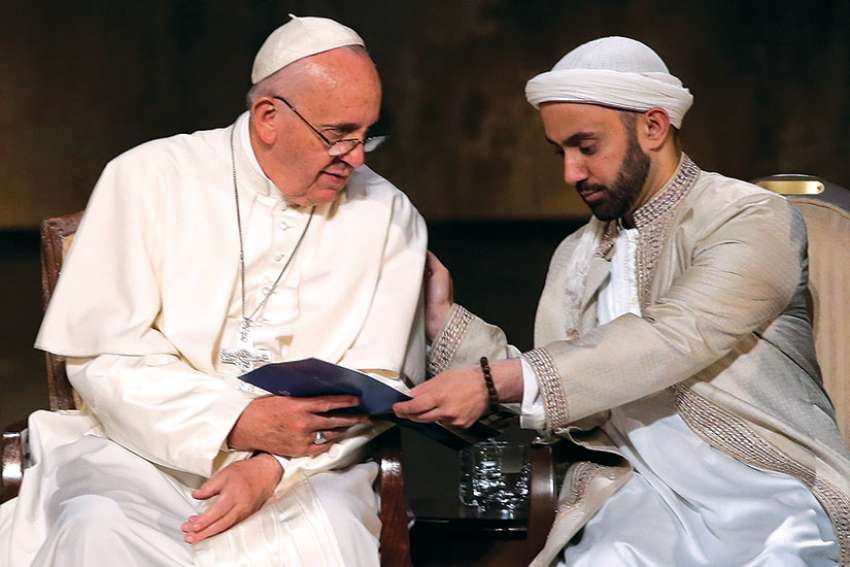For some of the same reasons, it may be safe to conclude that Islamophobia also is a sin. For our purpose here, we can define Islamophobia as fear, mistrust and especially hatred directed at an entire people because of their adherence to Islam. All too often the discussion, especially on behaviour by radical Islam, fails to distance or distinguish itself from the God-fearing, family-oriented, law-abiding and honest-working Muslims who simply want to be part of our communities.
Given a widespread negative attitude toward them, Muslims too often are forced to live in a shadow of undeserved suspicion as they attempt to go about their daily lives. Those attitudes are wrong and must end.
The extent of this mistrust was evident in a recent Canada-wide poll by Angus Reid. It showed that Islam is regarded “favourably” by just 33 per cent of Canadians. Less than half of Canadians (43 per cent) say it would be acceptable for one of their children to marry a Muslim, and only some 30 per cent of Canadians support a woman wearing a niqab or burka in public. That compares to 77 per cent who have no issues with turbans and a whopping 88 per cent who approve of a nun wearing a habit.
Unsurprisingly, Christianity is regarded as the most acceptable of Canada’s religions. But no religious group is viewed less favourably than Muslims, who are held in lower esteem than SiKHs, Hindus, Jews and Buddhists.
No doubt these numbers have been greatly influenced by world events. Hardly a week goes by without another report of a terrorist bombing or other atrocity. But we cannot allow ourselves to be seduced into hating Muslims because of the evil actions of a small minority who have been radicalized into terrorism. That attitude violates the most fundamental Christian commandment that we love our neighbour as ourselves.
It is important that Catholics resist forming negative personal opinions about Islam out of ignorance, neglect or outright disregard of the guidance given by the Church. The Church first spoke officially about its relationship with Islam in the Vatican II document Nostra Aetate. Published half a century ago, that document refers to Muslims as “esteemed” and speaks of Islam with respect and admiration. That view has not been changed by recent world events.
Pope John Paul II publicly kissed the Qur’an as a sign of respect in May 1999. Pope Francis has spoken positively about Islam noting, for example, that equating Islam with violence is wrong. In February he said just as there is no such thing as Christian terrorism or Jewish terrorism. Islam terrorism does not exist. For Francis the Qur’an is a book of peace.
Speaking aboard the plane taking him back to Rome after a five-day trip to Poland, he said, “I think it is not right to identify Islam with terrorism. It is not right and it is not true.” Two weeks after he was elected pope in 2013, Pope Francis washed and kissed the feet of at least two Muslim inmates who participated in a Holy Thursday celebration in a juvenile prison.
We all share a deep disdain for the radicalized behaviour of some Muslims who inflict their death toll on the innocent. These actions are evil personified and must be condemned. The majority of Muslims would agree with this and their voice should be the loudest in our common protest.
Our role is to support their protests by rejecting Islamophobia in all its forms. For some, this may take a concerted effort, but it is necessary because hate of any kind can spread like a virus.
Leadership in vehemently opposing Islamophobia and its destructive consequences must come from the classroom, the dynamic of the pulpit and the pew, and the home environment.
Clear and determined opposition to the sin of Islamophobia cannot be a choice we arbitrarily make, but rather a responsibility we must assume. It is important that we make a concerted commitment and take every opportunity to poison the roots of Islamophobia before those roots spread.
(Fr. Damian MacPherson, SA is Director Emeritus of the Office for Ecumenical and Interfaith Affairs for the Archdiocese of Toronto.)


